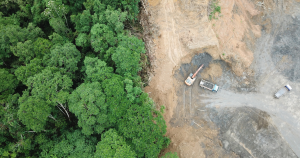In an emergency session convened today, Kenya’s National Assembly passed a motion to introduce a bill, within the next 30 days, aimed at ending Kenya’s membership of the International Criminal Court (ICC). Members of the opposition Coalition for Reforms and Democracy (Cord), led by former Prime Minister Raila Odinga, walked out of the House in opposition of the motion, which was tabled by majority leader Adan Duale.
The vote comes just days before Kenya’s Vice-President William Ruto and Joshua Arap Sang will stand trial in The Hague facing three counts of crimes against humanity for allegedly organising 2007-2008 post-election violence that killed at least 1,100 people and displaced more than 600,000. The trial of Kenyan President Uhuru Kenyatta, who faces five charges of crimes against humanity, including murder, rape, persecution, deportation and other inhumane acts, is due to start on 12 November 2013.
Any actual withdrawal from the ICC requires the submission of a formal notification to the UN Secretary-General, a process that would take effect one year after the date that the UNSG receives it, unless a later date is specified in the notice.
Statement by Alison Smith, Legal Counsel of No Peace Without Justice:
“No Peace Without Justice (NPWJ) and the Nonviolent Radical Party, Transnational and Transparty (NRPTT) strongly condemn Kenya’s Parliament decision to stand on the side of impunity by supporting the Kenyan government’s proposal to withdraw from the International Criminal Court (ICC) Statute.
“This decision is another disgraceful and shameful attempt by the Kenyan authorities to protect its leaders from being held to account for human rights violations allegedly committed by them as well as an insult to the hundreds of thousands of Kenyans who lost their lives or were displaced during the post-election violence that rocked the country in in late 2007 and early 2008.
“Furthermore, Kenya’s withdrawal from the ICC Rome Statute would not discharge the country from its obligations related to existing investigations or proceedings carried out by the Court. In other words, it would not affect the upcoming trials of Vice President William Ruto, and President Uhuru Kenyatta as their legal procedures have already begun. However, It would finally remove any pretence of Kenya being willing and able to conduct genuine national proceedings, to the detriment of any complementarity – or continued complementarity – such as claimed by those currently facing charges before the ICC.
“We urge both the Kenyan authorities and the defendants in the Kenya cases to cooperate fully with the ICC, and to take all possible steps to guarantee that the trials proceed promptly and smoothly, including to ensure proper protection for victims, witnesses and anyone else connected in any way with ICC proceedings as well as their full participation in the justice process.
“Impunity for politically-motivated violence has been the norm in Kenya for far too long and, so far, no decent domestic criminal accountability process has taken place to address the crimes committed in 2007-2008. We call upon Kenya to demonstrate its commitment to the ultimate goal of pursuing justice, by ensuring redress for the hundreds of thousands of victims and by signifying that the days of rewarding violence with political power are over”.
For further information, contact Alison Smith on asmith@npwj.org or +32-2-548-3912 or Nicola Giovannini on ngiovannini@npwj.org or +32-2-548-3915.




